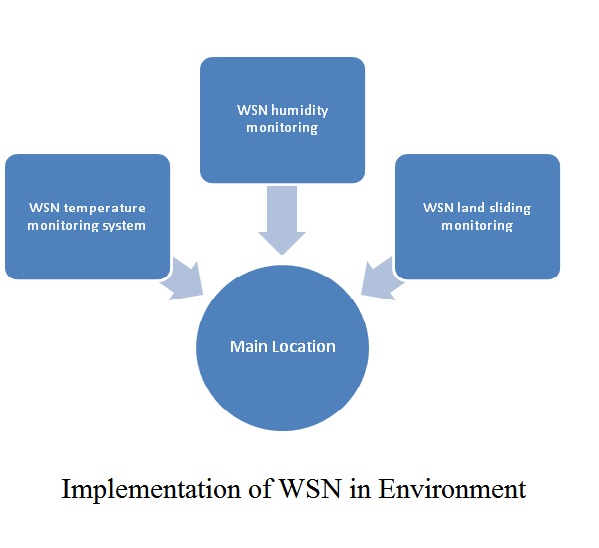Network Simulation Projects
Network Simulation Projects are widely used for simulating wireless and mobile networks. These projects help students, researchers, and PhD scholars to design, test, and evaluate different wireless communication scenarios. Here we discuss one of the most important domains in network simulation projects — Wireless Sensor Networks (WSN). Our team provides AI-Based OMNeT++ Network Projects for PhD & Research guidance for real-time simulation and analysis.
What is WSN?
Wireless Sensor Network (WSN), as the name suggests, is a network of sensor nodes that monitor environmental changes such as pressure, humidity, temperature, vibration, pollutants, and sound. We provide AI-Based OMNeT++ Network Projects for PhD & Research in WSN for students and scholars, enabling them to model real-time conditions. Wireless sensors detect environmental conditions and transmit the data to the correct location for processing.
There are two types of communication models in WSN:
1. Uni-directional
2. Bi-directional
Uni-directional:
In this type of WSN, the sensors detect environmental changes and send data to the main location. However, the main location cannot send any data back, and the activities of the sensor network cannot be controlled remotely. Such setups are often studied in AI-Based OMNeT++ Network Projects for PhD & Research to test efficiency and performance.
Bi-directional:
In this model, the WSN not only sends sensed data to the main location but also receives control signals back. This allows two-way communication, making the network more dynamic and efficient. We guide scholars in designing such AI-Based OMNeT++ Network Projects for PhD & Research using OMNeT++ to test different protocols and algorithms for advanced research.
Applications:
Wireless Sensor Networks are used in a variety of network simulation projects due to their broad applications. Our AI-Based OMNeT++ Network Projects for PhD & Research cover:
1. Security purposes: Military surveillance, smart home monitoring
2. Healthcare: Patient monitoring systems for illness, energy levels, sugar, BP, and heartbeat
3. Environmental sensing: Landslide detection, water level/quality monitoring, air pollution detection, and natural disaster alerts

Characteristics of Wireless Sensor Networks:
- Ability to withstand environmental conditions
- Easy to deploy and use
- Can function even with node failures
- Portable and flexible
WSN Network Simulation Projects in OMNeT++
We design customized Wireless Sensor Network simulations in OMNeT++. For example, a WSN can be simulated to detect environmental temperature changes. If the temperature rises above 45°C, the system sends an alert to the main control station. Similarly, various types of AI-Based OMNeT++ Network Projects for PhD & Research can be modeled and tested using OMNeT++, covering WSN, VANET, IoT, and other domains.
Article
The Best Choice
Services
Coding Implementation Services
OMNeT++ Coding Support
We offer a comprehensive OMNeT++ simulation tool that allows you to develop a wide range of OMNeT++ based networking Projects.
Read MoreNs3 Coding Support
Our team of experts develops custom NS-3 simulations and implements innovative protocols to address your unique networking challenges.cbg
Read MoreMATLAB Coding Support
Empower your research with our expert MATLAB coding assistance for research scholars
Read MorePython Coding Support
We provide comprehensive Python coding support for research scholars, from project conception to implementation and analysis
Read MoreCooja Contiki
We facilitate research progress by offering Cooja Contiki coding support for research scholars
Read MoreSumo Coding Support
We partner with research scholars by providing tailored Sumo coding support
Read MoreLatest Blog
Latest Articles From Our Blog Post

Latest Research and Thesis Topics in VANET
Vehicular Ad Hoc Networks (VANETs) represent a cutting-edge technology with the potential to revolutionize transportation systems.
Read More
PhD Guidance in Vehicular Ad Hoc Networks (VANET)
Vehicular Ad Hoc Networks (VANETs) are rapidly evolving, offering a transformative vision for the future of transportation.
Read MoreGet In Touch
Individuals investigating median pricing within their industry can greatly benefit from the expertise of leading researchers, particularly in areas such as research methodology, data coding, and academic writing.
No-35, South Usman Road,Chennai,India
phdacademy74@gmail.com
+91 8870457435
Popular Links
© PhD Academy. All Rights Reserved.